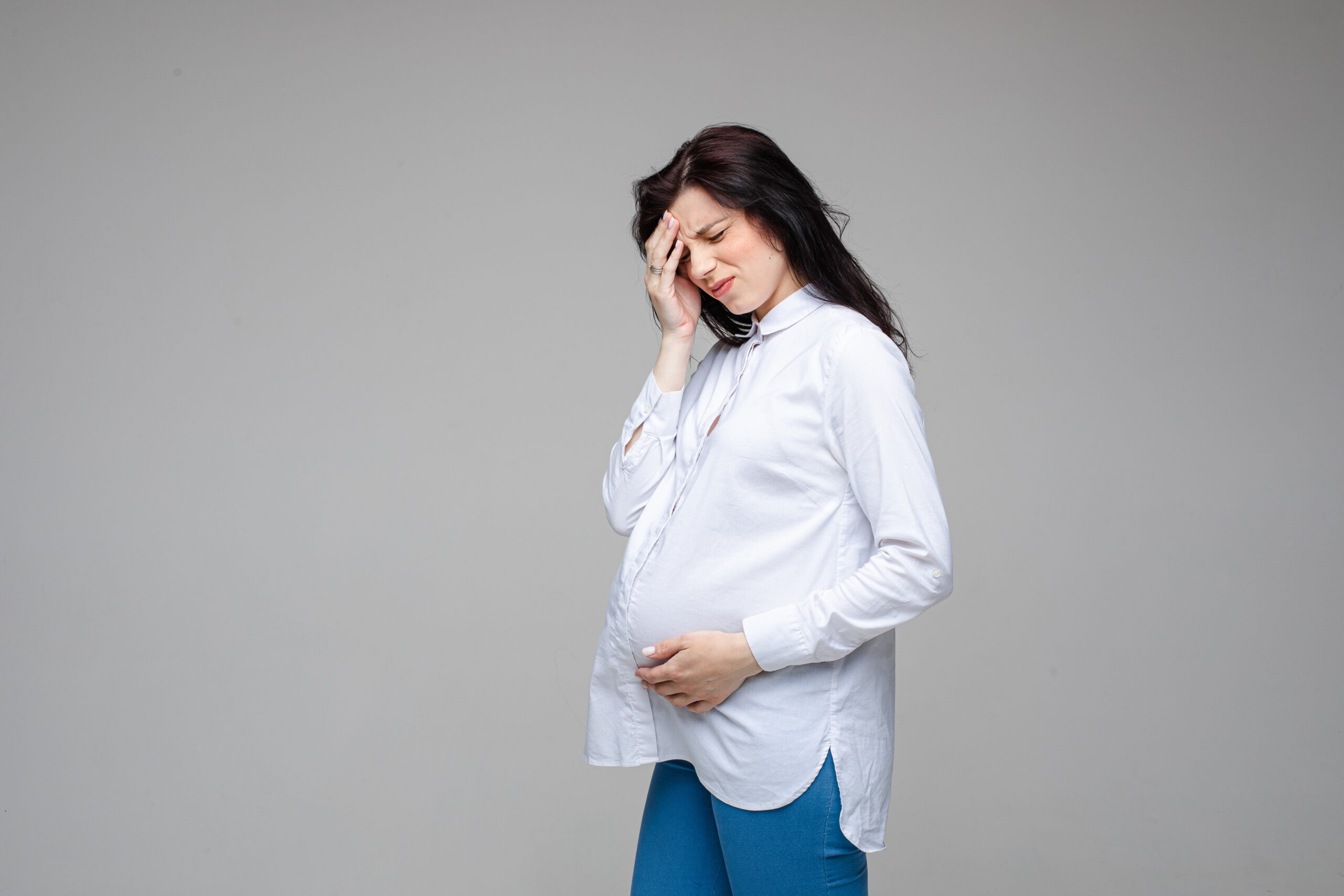The period of pregnancy is full of novel experiences and thrilling developments. For many, it also comes with some uncomfortable sensations, including cramps. Cramps are common during pregnancy and, in many cases, are a normal part of the process as your body adapts to support your growing baby. However, not all cramping is routine, and it’s crucial to know when to reach out to a healthcare professional. In this article, we’ll discuss the causes of cramps in pregnancy, what is generally considered normal, and when cramps may indicate the need for medical attention.
Understanding Cramps in Pregnancy
Cramps are often felt as a sharp or dull ache and can affect various parts of the body, especially the lower abdomen, back, or legs. They are typically caused by muscular contractions or the stretching of ligaments and tissues. Pregnancy cramps can result from several factors, such as changes in hormones, increased blood flow, and the physical adjustments your body makes as it supports your developing baby.
There are two primary categories of cramps during pregnancy:
- Normal Pregnancy Cramps: Caused by everyday changes and adjustments happening in the body.
- Abnormal or Concerning Cramps: May signal potential issues that could require medical attention.
Causes of Normal Pregnancy Cramps
Several factors can lead to cramping that is considered normal and not harmful to either mother or baby. Here are the common causes:
1. Implantation Cramping (Early Pregnancy)
In early pregnancy, cramping is often associated with the process of implantation, which occurs when the fertilized egg attaches to the uterine wall. This usually happens around 6–12 days after conception and can cause mild cramping and sometimes slight spotting. These cramps are generally not intense and should subside within a few days.
2. Stretching Ligaments
As your uterus expands, the ligaments supporting it, called round ligaments, stretch and thicken. This can cause discomfort or cramping in the lower abdomen or pelvic area, often known as round ligament pain. This is particularly common in the second trimester as the baby grows, leading to brief, sharp pains during sudden movements or exercise.
3. Gas and Constipation
The increased levels of the hormone progesterone during pregnancy slow down digestion, which can lead to constipation and trapped gas. These issues can cause abdominal discomfort and cramping. Cramping from gas and constipation tends to be temporary and subsides with lifestyle changes, such as eating more fiber-rich foods and staying hydrated.
4. Braxton Hicks Contractions (False Labor)
During the third trimester, many women experience Braxton Hicks contractions, often called “practice contractions.” These can feel like mild cramps or tightening in the abdomen and generally do not signify the onset of labor. Unlike true labor contractions, Braxton Hicks are irregular, don’t increase in intensity, and usually stop with movement or a change in position.
5. Increased Blood Flow
As pregnancy progresses, blood flow to the uterus and other reproductive organs increases. This can cause some mild cramping as the blood vessels expand. The cramping from increased blood flow is generally mild and more noticeable during the early stages of pregnancy.
When to Consider Cramps Normal
Mild, intermittent cramping that lasts for a short period is generally normal during pregnancy. It often occurs when changing positions, after physical exertion, or after eating. As long as the cramps are not severe and are not accompanied by symptoms such as bleeding, fever, or nausea, they are likely normal and simply part of your body’s adaptation to pregnancy.
Key Characteristics of Normal Cramps
- Mild and temporary
- Do not increase in severity
- Can be relieved by rest, hydration, or changing position
- Usually restricted to the pelvis or lower abdomen
When to Seek Help for Pregnancy Cramps
Not all cramping during pregnancy is benign. Certain types of cramps can signal an underlying issue that requires medical attention. Being aware of the warning signs can help ensure the health and safety of both mother and baby.
1. Severe Pain or Cramping
If you experience severe abdominal pain or cramping that does not subside, it could be a sign of a complication. Severe pain in early pregnancy may indicate an ectopic pregnancy, where the embryo implants outside of the uterus, often in the fallopian tube. Getting medical help right now is necessary because this could be a fatal condition.
2. Heavy Bleeding
Cramping accompanied by heavy bleeding is a red flag, especially in the first trimester. It could be a sign of miscarriage. While not all bleeding during pregnancy leads to miscarriage, it is important to consult with a healthcare provider to determine the cause and ensure proper care.
3. Regular Contractions Before 37 Weeks
Experiencing regular contractions that do not go away could signal preterm labor. If the cramping feels rhythmic and gets stronger over time, especially if it’s accompanied by back pain, pelvic pressure, or a change in vaginal discharge, contact your healthcare provider.
4. Fever or Chills
Cramping that is accompanied by fever or chills could indicate an infection, such as a urinary tract infection (UTI). UTIs are common during pregnancy and, if left untreated, can lead to more serious complications, including kidney infections. These infections can also cause preterm labor, so prompt treatment is essential.
5. Dizziness, Fainting, or Shoulder Pain
These symptoms could indicate a more serious condition, such as ectopic pregnancy or preeclampsia (a condition characterized by high blood pressure and damage to organs, often the liver and kidneys). These situations require immediate medical attention to avoid complications.
How to Relieve Normal Pregnancy Cramps
While some cramping is inevitable, there are various ways to manage and reduce discomfort. Here are some safe methods to relieve cramping during pregnancy:
1. Stay Hydrated
Dehydration can make cramps worse, so it’s important to drink plenty of water throughout the day. Hydration helps with digestion and can also reduce constipation, which can lead to cramping.
2. Take Warm Baths
A warm bath can soothe tired, cramping muscles. The body’s tension is eased and relaxation is promoted by warm water. Avoid hot baths, as high temperatures can be unsafe for the baby.
3. Gentle Exercise and Stretching
Engaging in gentle exercise, such as walking or prenatal yoga, can improve circulation, prevent stiffness, and reduce cramping. Stretching exercises specifically targeting the hips, lower back, and legs can also help alleviate discomfort.
4. Use a Pregnancy Pillow
Using a pregnancy pillow to support your belly and lower back can relieve tension in these areas, making it easier to find comfortable sleeping positions and reducing cramping during rest.
5. Wear Comfortable Clothing
Tight or restrictive clothing can exacerbate cramping and cause discomfort. Opt for loose, breathable clothing to avoid putting unnecessary pressure on your abdomen.
6. Avoid Sudden Movements
Rapid movements can cause sharp cramps, particularly in the ligaments around your uterus. Moving slowly and carefully when changing positions can help prevent these types of cramps.
When Cramps Indicate Labor
In late pregnancy, cramping may signify the onset of labor. True labor contractions differ from Braxton Hicks in several key ways. True labor contractions:
- Are consistent and grow in severity throughout time
- Last longer with each contraction
- Occur at shorter intervals
- Never leave with movement or rest.
If you believe you are experiencing true labor contractions before 37 weeks, contact your healthcare provider immediately, as this could be a sign of preterm labor.
Final Thoughts: Keeping Track and Staying Informed
While cramping is often a normal part of pregnancy, understanding what’s typical and what might be cause for concern is essential. Keeping track of your symptoms and discussing any unusual or concerning cramps with your healthcare provider ensures that you and your baby remain safe and healthy throughout your pregnancy. Remember, it’s always better to ask questions and seek medical advice when in doubt.



